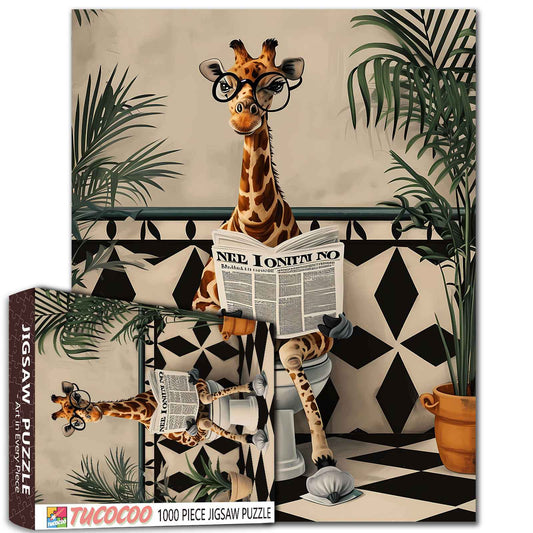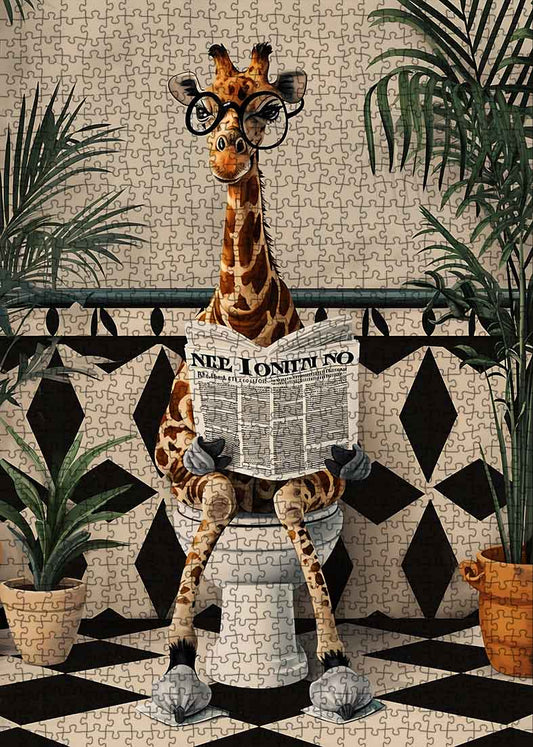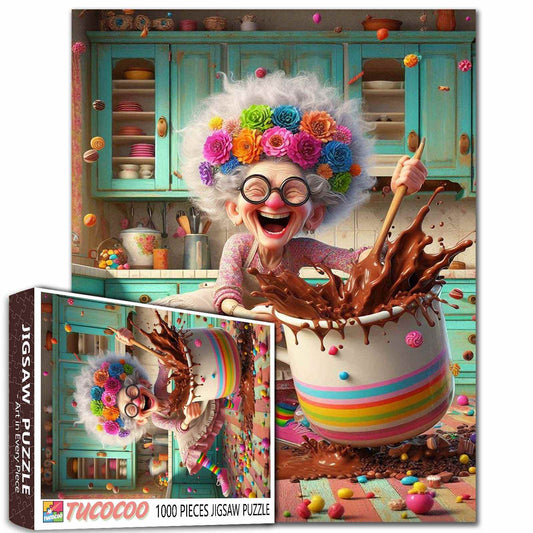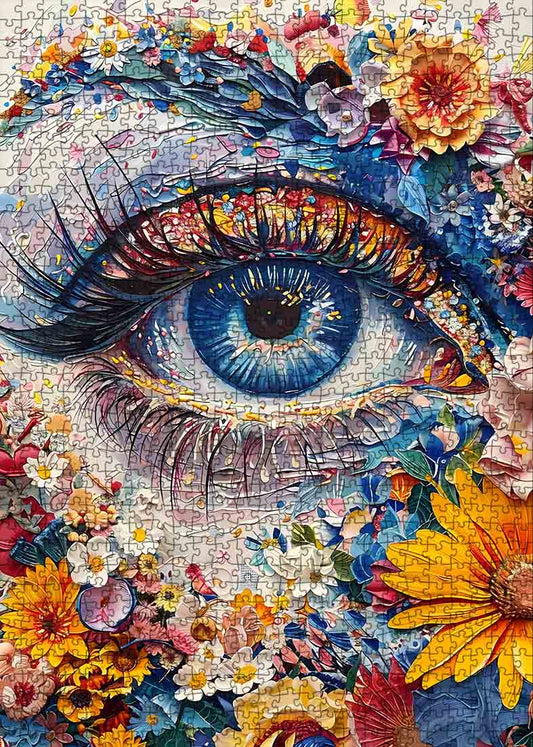
What kind of person likes to do jigsaw puzzles
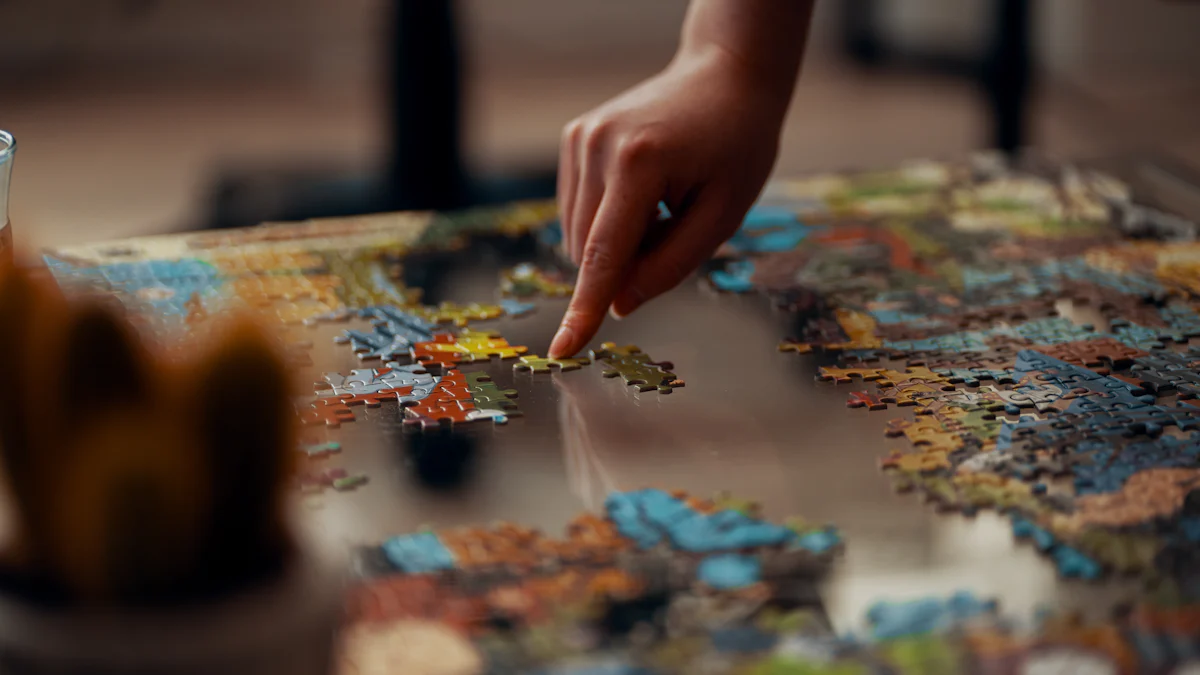
Have you ever wondered what kind of person finds joy in piecing together a jigsaw puzzle? If you’re someone who enjoys jigsaw puzzles, chances are you’re patient, observant, and detail-oriented. Puzzle-loving types often thrive on the satisfaction of solving challenges, one piece at a time. For many, this pastime isn’t just about completing an image—it’s about the journey, the focus, and the calm it brings. Loving jigsaw puzzles reveals a unique blend of persistence and creativity, making it a favorite activity for those who value both relaxation and mental stimulation.
Key Takeaways
Jigsaw puzzle enthusiasts often exhibit patience and persistence, embracing the journey of solving rather than rushing to finish.
Engaging in puzzles enhances analytical thinking and problem-solving skills, making it easier to tackle real-world challenges.
The process of piecing together puzzles stimulates creativity and visualization, allowing individuals to appreciate both logic and artistry.
Detail-oriented perfectionists thrive in puzzle-solving, as their attention to subtle differences helps them achieve precision and satisfaction.
Puzzles provide therapeutic benefits, promoting mindfulness and relaxation while reducing stress levels.
Both introverts and extroverts can enjoy puzzles, whether in solitary focus or as a collaborative social activity.
Starting with the right puzzle and creating a comfortable environment can enhance your puzzling experience and build confidence.
The Personality Traits of People Who Like to Do Jigsaw Puzzles
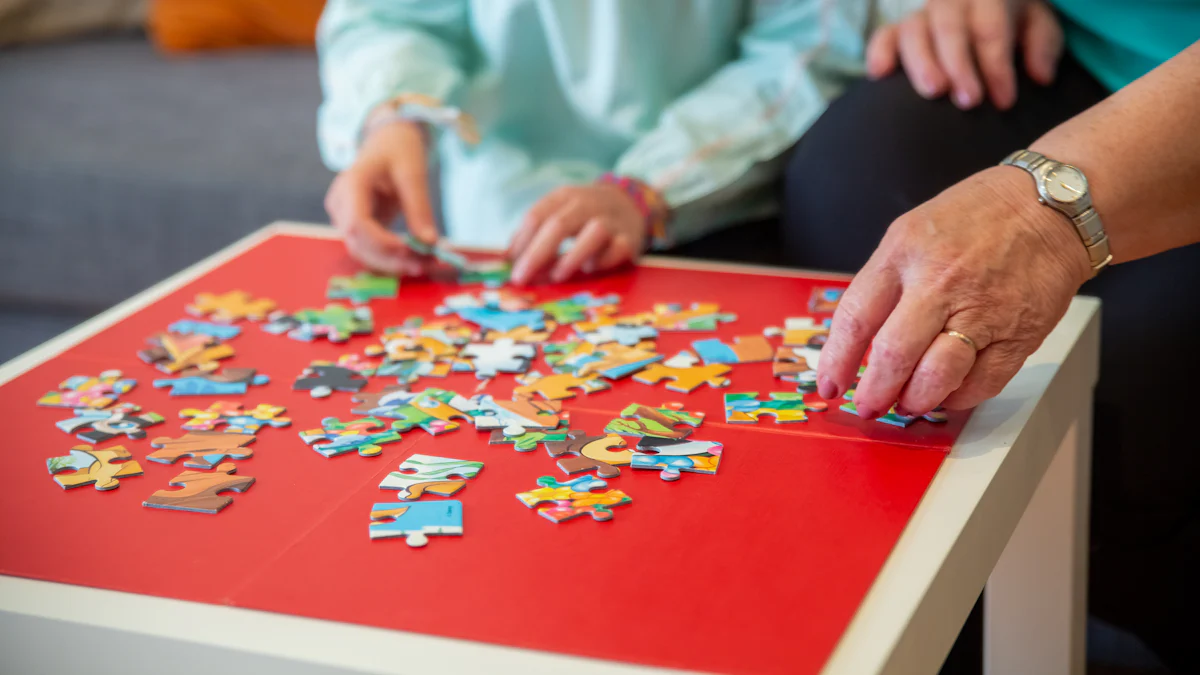
Patience and Persistence
If you enjoy solving jigsaw puzzles, you likely have a strong sense of patience. Each piece requires careful examination, and finding the right fit takes time. You don’t rush the process; instead, you embrace it. This patience often pairs with persistence. Persistent individuals don’t give up when the puzzle gets challenging. You keep going, even when progress feels slow. This determination reflects a mindset that values steady effort over instant results. It’s not just about finishing the puzzle—it’s about enjoying the journey and staying committed until the last piece clicks into place.
Studies on cognitive abilities suggest that persistence in solving puzzles can improve memory and concentration. Regularly working on puzzles strengthens your ability to focus for extended periods, which benefits other areas of life too.
Analytical Thinking and Problem-Solving
Liking jigsaw puzzles often means you’re a natural problem-solver. You analyze patterns, shapes, and colors to figure out where each piece belongs. This process sharpens your analytical thinking. You break down the big picture into smaller, manageable parts, which is a skill that applies to many real-world challenges. Solving puzzles also encourages strategic thinking. You might start with the edges or group similar colors together, creating a plan to tackle the task efficiently.
According to research, solving jigsaw puzzles enhances visual-spatial reasoning and strategic analysis. These skills help you approach problems creatively and find solutions in innovative ways.
If you love putting small details together, you probably enjoy the mental workout that comes with solving puzzles. It’s a rewarding way to challenge your brain while having fun.
Creativity and Visualization
Jigsaw puzzles aren’t just about logic—they also tap into your creative side. You visualize how pieces fit together, often imagining the completed image before it’s fully formed. This ability to see the bigger picture while focusing on individual pieces showcases your creativity. Creative thinkers thrive on this balance between imagination and structure. You might even find joy in the artistic designs of the puzzles themselves, appreciating the beauty of the final image.
Research highlights that solving puzzles stimulates cognitive function and boosts creativity. It’s a perfect activity for those who enjoy blending logical thinking with artistic appreciation.
Your knack for visualization makes you a detail-oriented perfectionist. You notice subtle differences in shapes and colors, and you take pride in assembling the puzzle with precision. This attention to detail reflects a personality that values accuracy and craftsmanship.
Being Detail-Oriented Perfectionists
If you’re someone who loves jigsaw puzzles, chances are you have a sharp eye for detail. You notice the subtle differences in shapes, colors, and patterns that others might overlook. This ability to focus on the smallest elements helps you piece together the bigger picture with precision. Every piece matters, and you take pride in finding its exact place. This attention to detail reflects a perfectionist streak, where accuracy and craftsmanship become part of the joy.
Being detail-oriented doesn’t just make you good at puzzles—it’s a skill that carries over into other areas of life. Whether it’s organizing your workspace, planning a project, or solving problems, your knack for noticing the finer points gives you an edge. You likely enjoy tasks that require precision and care, finding satisfaction in doing things the right way.
According to studies, solving jigsaw puzzles enhances visual-spatial reasoning and strengthens cognitive abilities. This process trains your brain to focus on details while keeping the bigger picture in mind, a skill that’s valuable in both personal and professional settings.
Your perfectionist tendencies also mean you’re not afraid to take your time. You approach each puzzle methodically, ensuring every piece fits perfectly before moving on. This mindset fosters patience and persistence, qualities that help you tackle challenges with confidence. The act of completing a puzzle becomes more than just a hobby—it’s a reflection of your personality and your commitment to excellence.
Jigsaw puzzles also offer a therapeutic benefit for detail-oriented individuals. The process of sorting and assembling pieces can feel calming and meditative. It allows you to channel your focus into something tangible, helping you unwind while still engaging your mind. For many, this balance of relaxation and mental stimulation is what makes puzzles so appealing.
Research highlights that puzzles can improve short-term memory and problem-solving skills. They also promote mindfulness, making them a great activity for reducing stress and boosting mental health.
If you’ve ever felt a sense of accomplishment after placing the final piece, you know how rewarding it is to see your hard work come together. That satisfaction isn’t just about finishing the puzzle—it’s about knowing you gave it your full attention and effort. For detail-oriented perfectionists like you, that’s what makes the experience truly fulfilling.
What Jigsaw Puzzles Reveal About Your Personality
A Love for Structure and Order
If you enjoy jigsaw puzzles, you likely appreciate structure and order. Each piece has a specific place, and the process of finding where it belongs can feel deeply satisfying. You might start by organizing the pieces—separating edges, grouping similar colors, or arranging patterns. This methodical approach reflects your preference for clarity and organization. You thrive in environments where things make sense and fit together seamlessly.
Many puzzle enthusiasts, like Bill Gates, share this love for order. Gates, known for his analytical mind, often brings jigsaw puzzles on vacations. For him, the act of solving puzzles mirrors his passion for problem-solving and creating systems that work. Similarly, when you work on a puzzle, you’re not just assembling an image—you’re bringing chaos into harmony. This process can feel both calming and rewarding, especially if you value precision and structure in your daily life.
“The satisfaction of seeing the pieces come together is unmatched,” said Patrick Stewart, a devoted puzzle fan. His words capture the joy of transforming scattered pieces into a cohesive whole.
A Preference for Mindfulness and Relaxation
Jigsaw puzzles offer more than just mental stimulation—they provide a chance to slow down and relax. When you sit down with a puzzle, you focus entirely on the task at hand. This mindfulness helps you tune out distractions and enjoy the present moment. The repetitive motion of sorting and fitting pieces can feel meditative, making puzzles a perfect way to unwind after a busy day.
Stephen King, the legendary author, uses puzzles as a way to relax. Despite his intense writing schedule, he finds time to enjoy this timeless pastime. Like King, you might find that puzzles help you recharge. They allow you to step away from screens and immerse yourself in something tangible. This quiet, focused activity can reduce stress and promote a sense of calm.
Studies show that engaging in mindful activities like puzzles can lower cortisol levels, helping you feel more at ease. The act of concentrating on small details while keeping the bigger picture in mind fosters both relaxation and mental clarity.
Goal-Oriented and Focused Mindsets
If you love jigsaw puzzles, you probably have a goal-oriented mindset. Completing a puzzle requires focus and determination. You set small goals—like finishing the edges or completing a specific section—and work steadily toward the final picture. This ability to break down a large task into manageable steps reflects your strong sense of purpose and drive.
Goal-oriented individuals often find joy in the challenge of puzzles. You don’t shy away from complex designs or thousands of pieces. Instead, you embrace the opportunity to test your skills and push your limits. This mindset aligns with the traits of high achievers, who value persistence and hard work.
The journey of solving a puzzle mirrors your approach to other challenges in life. You stay focused, tackle obstacles one step at a time, and celebrate your progress along the way. Whether it’s a 500-piece puzzle or a major life goal, you approach each task with the same level of commitment and enthusiasm.
As Bill Gates demonstrates, puzzles aren’t just a pastime—they’re a way to sharpen your focus and achieve a sense of accomplishment. His dedication to puzzles reflects the mindset of someone who values both the process and the result.
How Personality Types Align with Jigsaw Puzzles
Introverted Personality Types (e.g., ISFJ, INFJ)
If you’re an introvert, jigsaw puzzles might feel like the perfect match for your personality. Types like ISFJ (The Nurturer) and INFJ (The Advocate) often gravitate toward activities that allow for quiet focus and introspection. Puzzles provide a peaceful escape from the noise of daily life, letting you recharge while engaging your mind. You can immerse yourself in the process without feeling rushed or pressured, which aligns beautifully with your preference for calm and structured environments.
Introverts often enjoy the methodical nature of puzzling. Sorting pieces, analyzing patterns, and slowly building the image can feel meditative. This activity gives you the chance to reflect and unwind while still challenging your brain. For ISFJs, who value order and practicality, puzzles offer a satisfying way to bring chaos into harmony. INFJs, with their creative and visionary tendencies, might find joy in visualizing the completed picture and working toward that goal.
“Puzzles are my go-to for relaxation,” shared one INFJ in a recent survey. “They help me focus and feel accomplished without overwhelming me.”
If you identify as an introvert, you might also appreciate how puzzles let you work at your own pace. There’s no competition or external pressure—just you, the pieces, and the satisfaction of seeing everything come together. This makes jigsaw puzzles a favorite pastime for those who value mindfulness and personal growth.
Extroverted Personality Types and Social Puzzle-Solving
You might think puzzles are only for quiet, solitary moments, but extroverts can enjoy them just as much—especially when they involve teamwork. Extroverted types, like ENFPs (The Campaigner) and ESFPs (The Entertainer), often bring energy and enthusiasm to group activities. For you, solving puzzles can become a social event, filled with laughter, collaboration, and shared triumphs.
Working on a puzzle with friends or family allows you to combine your love for connection with the challenge of problem-solving. You might take the lead in organizing pieces or brainstorming strategies, turning the experience into a fun and interactive bonding moment. Extroverts often thrive in these settings, where teamwork and communication play a big role.
According to a survey, nearly half of puzzlers say they enjoy the activity for its stress-relief benefits. For extroverts, this stress relief often comes from the joy of connecting with others during the process.
Social puzzle-solving also taps into your natural ability to energize a group. You might encourage others to keep going when the puzzle gets tricky or celebrate small victories along the way. This collaborative approach makes puzzles a great fit for extroverts who enjoy combining mental challenges with social interaction.
Whether you’re an introvert seeking quiet focus or an extrovert looking for a shared experience, jigsaw puzzles offer something for everyone. They adapt to your personality, making them a versatile and rewarding hobby.
The Cognitive and Emotional Benefits of Jigsaw Puzzles
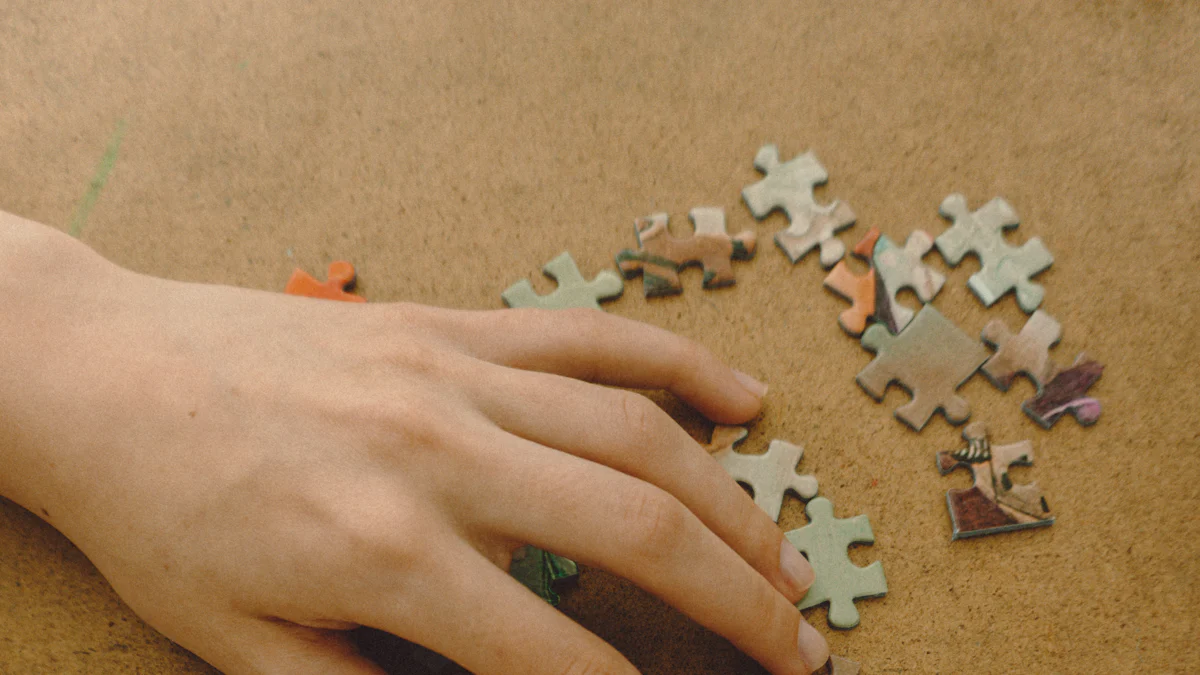
Enhancing Memory and Attention to Detail
When you dive into a jigsaw puzzle, you engage your brain in a way that enhances memory and sharpens your attention to detail. Each piece requires you to recall shapes, colors, and patterns, which strengthens your memory over time. As you search for the right fit, you train your brain to notice subtle differences and similarities, boosting your ability to focus on details. This skill doesn't just help in puzzles; it translates to everyday tasks where precision matters.
Expert Insight: According to psychologists, solving puzzles can improve cognitive functions by exercising both the left and right sides of the brain. This dual engagement enhances your memory and attention span, making you more adept at noticing details in various aspects of life.
Reducing Stress and Promoting Relaxation
Jigsaw puzzles offer a peaceful escape from the hustle and bustle of daily life. When you sit down with a puzzle, you enter a state of mindfulness, focusing solely on the task at hand. This concentration helps reduce stress and promotes relaxation. The repetitive action of sorting and fitting pieces can feel meditative, allowing you to unwind and recharge.
Psychological Perspective: Engaging in puzzles for relaxation can lower cortisol levels, the hormone associated with stress. By immersing yourself in the calming process of solving jigsaw puzzles, you create a serene environment that fosters mental clarity and peace.
Boosting Problem-Solving Skills and Creativity
Solving jigsaw puzzles is not just about fitting pieces together; it's a workout for your problem-solving skills and creativity. You analyze patterns, strategize your approach, and think critically to complete the picture. This process enhances your ability to tackle challenges creatively and find innovative solutions.
Creative Insight: The INFJ personality type, known for its creative and analytical nature, often excels at jigsaw puzzles. Their idealistic approach to challenging puzzles reflects a broader ability to think outside the box and solve problems with creativity.
By engaging in jigsaw puzzles, you not only enjoy a rewarding hobby but also develop valuable cognitive and emotional skills. Whether you're enhancing your memory, reducing stress, or boosting your problem-solving abilities, puzzles offer a holistic approach to personal growth and relaxation.
Why Jigsaw Puzzles Appeal to People of All Ages
Jigsaw puzzles hold a special charm that transcends age. Whether you’re a child discovering the joy of fitting pieces together or an adult seeking a relaxing escape, puzzles offer something for everyone. Their universal appeal lies in their ability to entertain, challenge, and bring people together, no matter their stage in life.
Universal Accessibility and Versatility
Jigsaw puzzles are one of the most accessible hobbies you can find. They don’t require expensive equipment or specialized skills. All you need is a flat surface and a willingness to dive in. This simplicity makes puzzles an activity that anyone can enjoy, regardless of age or experience. From toddlers working on chunky wooden puzzles to seniors tackling intricate 1,000-piece designs, there’s a puzzle for every skill level.
The versatility of puzzles adds to their widespread appeal. You can choose themes that match your interests, whether it’s landscapes, animals, or abstract art. Some puzzles even feature educational elements, like maps or historical scenes, making them a fun way to learn while you play. For families, puzzles provide a shared activity that bridges generational gaps. Kids, parents, and grandparents can all work together, creating memories while solving a common challenge.
Fun Fact: According to Baylor College of Medicine, solving puzzles enhances visual-spatial reasoning and concentration, making it a great activity for children developing cognitive skills and adults looking to keep their minds sharp.
Puzzles also adapt to your lifestyle. You can work on them solo for some quiet time or invite friends and family to join for a collaborative experience. This flexibility ensures that puzzles fit seamlessly into your routine, whether you’re unwinding after a long day or hosting a game night.
A Timeless Hobby for All Generations
Jigsaw puzzles have stood the test of time, remaining a beloved pastime for centuries. Their enduring popularity speaks to their ability to evolve while staying true to their core appeal. In today’s fast-paced digital world, puzzles offer a refreshing break from screens. They encourage you to slow down, focus, and enjoy the process, making them a timeless antidote to modern stress.
For younger generations, puzzles spark creativity and problem-solving skills. Kids learn patience and persistence as they search for the right pieces. For older adults, puzzles provide mental stimulation that helps maintain cognitive health. Studies suggest that engaging in activities like puzzles can reduce stress, improve memory, and even delay signs of cognitive decline.
Research Insight: PubMed Central highlights that jigsaw puzzles act as a protective factor against cognitive aging and dementia, making them especially beneficial for seniors.
The beauty of puzzles lies in their ability to bring people together. Families often gather around a puzzle during holidays, creating a sense of connection and teamwork. Couples use puzzles as a way to bond over a shared goal. Even during challenging times, like the COVID-19 pandemic, puzzles became a source of comfort and relaxation for many.
Therapeutic Note: LinkedIn reports that puzzles played a significant role in stress relief during the pandemic, offering a calming activity when people needed it most.
Whether you’re eight or eighty, puzzles provide a sense of accomplishment that never gets old. Placing the final piece feels just as satisfying the hundredth time as it does the first. This timeless quality ensures that puzzles will continue to captivate and inspire future generations.
Tips for Starting Your Jigsaw Puzzle Journey
Starting your jigsaw puzzle journey can feel exciting and a bit overwhelming. With so many options available, knowing where to begin makes all the difference. Whether you're new to puzzles or returning after a long break, these tips will help you dive in with confidence.
Choosing the Right Puzzle for Your Skill Level
Picking the right puzzle is the first step to an enjoyable experience. If you're just starting out, go for a puzzle with fewer pieces—around 300 to 500 pieces is a great place to begin. These puzzles are challenging enough to keep you engaged but not so difficult that they feel frustrating. Look for designs with clear patterns or distinct color sections, as these make it easier to sort and assemble the pieces.
For those with more experience, consider puzzles with 1,000 pieces or more. Intricate designs, like landscapes or abstract art, add an extra layer of challenge. If you're feeling adventurous, try specialty puzzles, such as shaped puzzles or ones with gradient colors. These push your skills further and keep things interesting.
Pro Tip: Tucocoo offers a wide range of puzzles for all skill levels. Their beginner-friendly options and advanced designs ensure there's something for everyone.
When choosing a puzzle, think about your interests. Do you love nature scenes, cityscapes, or animals? Picking a theme you enjoy makes the process even more rewarding. Remember, the goal is to have fun while building your skills.
Setting Up a Puzzle-Friendly Environment
Creating the right environment sets you up for success. Start by finding a flat, well-lit surface where you can spread out your puzzle pieces. A dining table or a dedicated puzzle board works perfectly. Good lighting is essential—it helps you see the details in each piece, reducing eye strain and making the process smoother.
Organize your space before you begin. Lay out all the pieces and flip them right-side up. Group similar colors or patterns together to make assembly easier. If you're working on a larger puzzle, consider using sorting trays or small containers to keep pieces organized.
Helpful Tip: If you don't have a permanent space for your puzzle, use a roll-up mat. These mats let you store your puzzle-in-progress without losing your hard work.
Comfort is key when puzzling. Choose a chair that supports your back and keeps you comfortable during long sessions. Keep snacks and water nearby to stay energized. If you enjoy background noise, play some music or a podcast to make the experience even more enjoyable.
Finally, set realistic goals for your puzzle sessions. You don't need to finish it all at once. Break the task into smaller sections, like completing the edges or focusing on one color group. This approach keeps the process manageable and satisfying.
Fun Fact: Many puzzle enthusiasts find the act of sorting and assembling pieces therapeutic. It’s a great way to relax and unwind after a busy day.
By choosing the right puzzle and setting up a comfortable environment, you'll create a positive experience that keeps you coming back for more. With each puzzle you complete, you'll build confidence, sharpen your skills, and discover the joy of this timeless hobby.
Jigsaw puzzles attract a unique kind of person—someone who values patience, creativity, and analytical thinking. Whether you’re piecing together a 100-piece beginner puzzle or tackling a 1,000-piece masterpiece, solving puzzles offers a rewarding experience that sharpens your mind and soothes your soul. Introverts can enjoy the quiet focus of solo puzzling, while extroverts might turn it into a lively group activity. No matter your personality type, puzzles provide a chance to relax, challenge yourself, and discover more about who you are. Why not start your journey today and see what solving jigsaw puzzles reveals about you?
FAQ
What kind of person enjoys jigsaw puzzles?
People who enjoy jigsaw puzzles often share traits like patience, creativity, and a love for challenges. You might find satisfaction in solving puzzles if you’re detail-oriented, goal-driven, or enjoy visual aesthetics. Whether you’re an introvert seeking quiet focus or an extrovert looking for a group activity, puzzles offer something for everyone.
Fun Fact: Around 34% of adults in the United States regularly work on jigsaw puzzles, highlighting their widespread appeal.
Are jigsaw puzzles only for creative individuals?
Not at all! While creative thinkers often enjoy the artistic designs and visualization involved, puzzles also attract analytical minds. If you love problem-solving or breaking tasks into smaller steps, you’ll likely find puzzles rewarding. They engage both your logical and imaginative sides, making them a versatile hobby.
Can jigsaw puzzles help reduce stress?
Yes, they can! Working on a puzzle helps you focus on the present moment, creating a sense of mindfulness. The repetitive action of sorting and assembling pieces feels meditative, which can lower stress levels and promote relaxation.
Psychological Insight: Studies show that puzzles can reduce cortisol, the stress hormone, helping you feel calmer and more focused.
Are puzzles better for solo activities or group fun?
Both! If you enjoy quiet, introspective activities, puzzles are perfect for solo time. On the other hand, they’re great for social bonding too. You can work on a puzzle with friends or family, turning it into a collaborative and fun experience.
Tip: Extroverts often enjoy the teamwork aspect of puzzles, while introverts appreciate the peaceful focus they provide.
What personality types are drawn to jigsaw puzzles?
Jigsaw puzzles appeal to a wide range of personality types. Introverted types like ISFJs and INFJs enjoy the calm and structured nature of puzzling. Extroverted types, such as ENFPs, often thrive in group puzzle-solving sessions. Regardless of your personality, puzzles adapt to your preferences.
Do jigsaw puzzles improve cognitive skills?
Absolutely! Puzzles enhance memory, attention to detail, and problem-solving abilities. They engage both sides of your brain, improving visual-spatial reasoning and strategic thinking.
Expert Insight: Psychologists note that solving puzzles strengthens cognitive functions, making it a great mental workout.
How do I choose the right puzzle for my skill level?
Start with a puzzle that matches your experience. Beginners might enjoy puzzles with 300–500 pieces, while seasoned puzzlers can tackle 1,000-piece or more intricate designs. Choose themes that interest you, like nature, cityscapes, or abstract art, to make the process even more enjoyable.
Pro Tip: Tucocoo offers a variety of puzzles for all skill levels, from beginner-friendly options to advanced challenges.
Are jigsaw puzzles suitable for kids and seniors?
Yes, they are! Puzzles are a timeless hobby that appeals to all ages. Kids benefit from improved cognitive development and patience, while seniors enjoy mental stimulation and relaxation. They’re a great way to bridge generational gaps and create shared memories.
Research Insight: Studies suggest that puzzles can delay cognitive decline in seniors, making them a valuable activity for maintaining brain health.
Can puzzles boost creativity?
Definitely! Puzzles encourage you to visualize the completed image and think creatively about how pieces fit together. This process stimulates your imagination and helps you approach challenges with a fresh perspective.
Why are jigsaw puzzles so popular?
Jigsaw puzzles combine relaxation, challenge, and satisfaction. They offer a break from screens, engage your mind, and provide a sense of accomplishment when completed. Their versatility and accessibility make them a favorite pastime for millions worldwide.
Fun Fact: During the COVID-19 pandemic, puzzles became a go-to activity for stress relief and family bonding.



